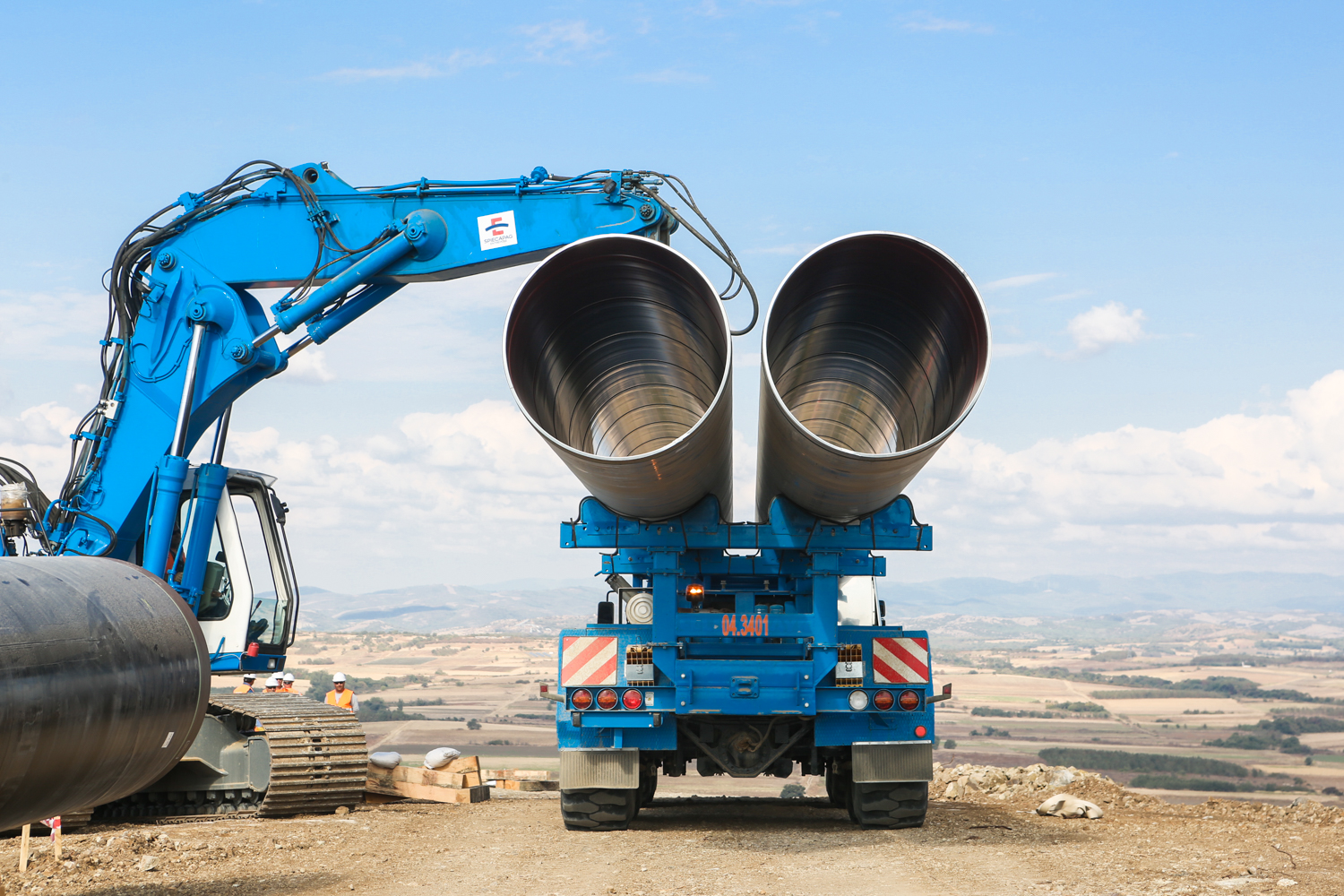TAP Gas Pipeline Completes $4.5 Billion Project Financing
1/11/2019
LONDON (Reuters) – The Trans-Adriatic Pipeline (TAP) has completed its $4.5 billion (3.9 billion euros) project financing, paving the way for construction to be completed for start-up in 2020, its managing director said on Friday.

TAP, the final leg of a $40 billion project called the Southern Gas Corridor to transport gas from Central Asia to Western Europe, is a cornerstone of the European Union’s energy security policy to wean the bloc off Russian gas supplies.
With the first delivery of gas to Europe expected in 2020, TAP will be the first non-Russian gas pipeline to supply Europe since the Medgaz link, which started deliveries from Algeria to Spain in 2011.
TAP will transport up to 10 Bcm of natural gas per year from the Shah Deniz II field in Azerbaijan to Italy.
“With the financial close now achieved, TAP has reached another major milestone,” said Luca Schieppati, the TAP managing director.
“With project financing now concluded, TAP can progress to the final completion of the project and delivery of Shah Deniz II gas in 2020.”
The company said it completed the financial close in December, in what was the largest project finance agreed for a European infrastructure project last year.
Last year, the European Investment Bank (EIB) and the European Bank for Reconstruction and Development (EBRD) approved loans for the project.
The rest of the financing has come from export credit agencies and a group of 17 commercial banks, which include Bank of China, BNP Paribas, Societe Generale and UniCredit.
TAP AG has the option of raising additional finance, for example for increasing the pipeline’s 10 Bcm capacity to 20 Bcm if demand requires it, said Stephanie Hudson, head of project finance.
Schieppati said construction is running according to schedule.
“More than 82% of construction is done. What we are doing in the construction phase is complying with the high-level environmental and social standards set by the EIB and EBRD,” he added.
The project has faced opposition on environmental and political grounds, as well as from local communities in Italy amid fears it will discourage tourism in the south of the country.
In October, however, Prime Minister Giuseppe Conte gave Italy’s final approval to the project, which had been strongly contested by the 5-Star Movement, one of the two parties in the ruling coalition.
Related News
Related News
Sign up to Receive Our Newsletter

- Keystone Oil Pipeline Resumes Operations After Temporary Shutdown
- Freeport LNG Plant Runs Near Zero Consumption for Fifth Day
- Biden Administration Buys Oil for Emergency Reserve Above Target Price
- Mexico Seizes Air Liquide's Hydrogen Plant at Pemex Refinery
- Enbridge to Invest $500 Million in Pipeline Assets, Including Expansion of 850-Mile Gray Oak Pipeline
- Enbridge Receives Approval to Begin Service on Louisiana Venice Gas Pipeline Project
- U.S. to Acquire 3 Million Barrels of Oil for Emergency Reserve in September
- AG&P LNG Acquires 49% Stake in Vietnam's Cai Mep LNG Terminal
- BP's Carbon Emissions Increase in 2023, Ending Decline Since 2019
- Texas Sues EPA Over Methane Emission Rules for Oil and Gas Sector
Pipeline Project Spotlight
Owner:
East African Crude Oil Pipeline Company
Project:
East African Crude Oil Pipeline (EACOP)
Type:
TotalEnergies in discussions with a Chinese company after Russian supplier Chelpipe was hit by sanctions.
Length:
902 miles (1,443 km)
Capacity:
200,000 b/d
Start:
2022
Completion:
2025




Comments